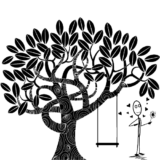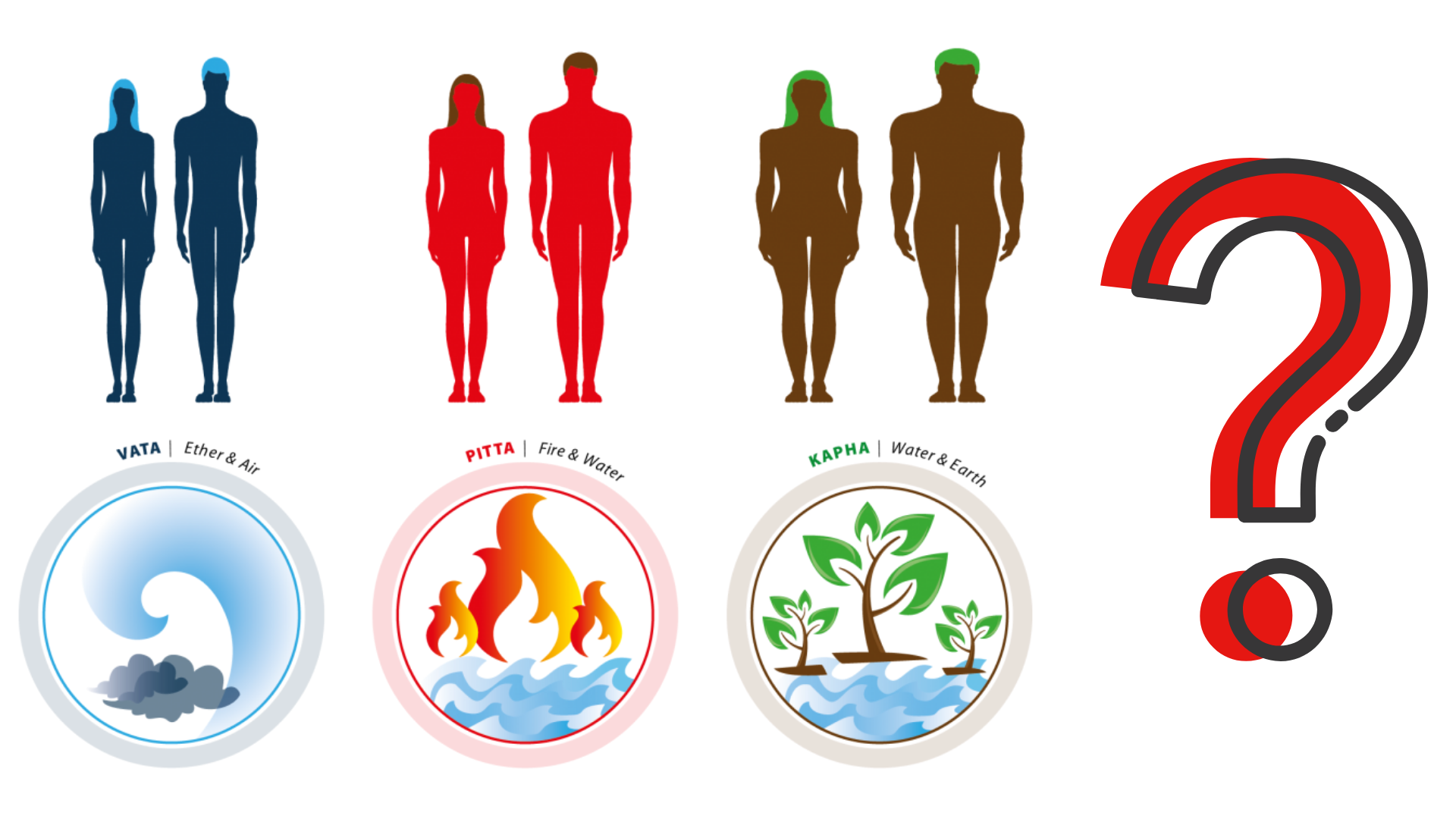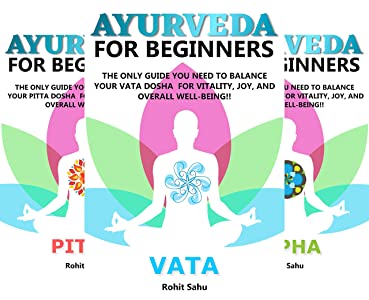Do you know why some of us like salty food and others like sweet, why some like summer while others like winter? This is solely because of the different body types as per Ayurveda that governs our choices.
As per Ayurveda, our bodies are made up of 5 elements: Water, Earth, Air, Fire, and Ether. The combination of these 5 elements determines one’s Prakriti or constitution. Ayurveda categorizes the combination of these elements into 3 doshas: Vata (Air + Ether), Pitta Fire + Water), Kapha (Water + Earth).
The balance of these 3 doshas is what we call health. Any imbalance of these doshas leads to diseases. Everyone has all 3 doshas but one is primary, the other is secondary, and the third is least prominent.
If Doshas are balanced, we are healthy; when they are unbalanced, we develop a disorder commonly expressed by skin problems, impaired nutrition, insomnia, irritability, and anxiety.
Vata, Pitta, and Kapha are all important to our biology in some way, so no one is greater than, or superior to, any other. Each has a very specific set of basic functions to perform in the body.
That said, when the Doshas are out of control, our well-being can be damaged. However, before we get into the particulars of each of the three Doshas, it is helpful to understand their basic nature and their wider function in the natural world.
Each of the Doshas has its own special strengths and weaknesses, and with a little awareness, you can do a lot to remain healthy and balanced. You can use this series to adjust your lifestyles and routines in a way that supports your constitution.
Here is a quick test to know your body type/dosha so that you can make better choices by living the lifestyle as per your dosha prakriti for overall well-being. This dosha test also offers a deep understanding of our personalities.
Answer these 15 questions genuinely and note your answers in a’s, b’s, or c’s on a paper or in your phone. At the end sum up the total number of a’s, b’s, and c’s to know your dominant, secondary, and least prominent dosha respectively.
Q 1. What’s your skin type?
a) Dry
b) Normal to oily
c) Oily
Q 2. What’s your hair type?
a) Rough (dry and wavy)
b) Normal (straight and thin)
c) Thick (curly and oily)
Q 3. What’s your emotional nature?
a) Nervous and anxious
b) Angry and impatient
c) Loving and caring
Q 4. How’s your memory?
a) Quick (short-term memory is good)
b) Average (but once learned, never forgets)
c) Slow (Long-term memory is good)
Q 5. How’s your appetite?
a) Irregular
b) Strong and sharp (always hungry)
c) Decent
Q 6. What is your physical built?
a) Thin (hardly gains weight)
b) Medium built (can gain or lose weight easily)
c) Large (gains weight easily)
Q 7. How do you walk and talk?
a) Fast
b) Moderate
C) Slow
Q 8. What’s your favorite weather?
a) Spring
b) Winter
c) Summer
Q 9. How do you sweat?
a) Little (minimum odour)
b) A lot (medium odour)
c) Moderately (strong body odour)
Q 10. How are your lips and teeth?
a) Thin lips and uneven teeth
b) Medium-sized soft lips and medium-sized teeth
c) Large lips and well-aligned teeth
Q 11. How is your mind on actions?
a) It overthinks
b) Implements quickly
c) has a tendency to procrastinate
Q 12. How are your eyes?
a) Small and dry
b) Medium but often get reddish
c) Big with thick eyelashes
Q 13. What are some general signs in your body?
a) Cracking sound in joints, nails crack easily, small forehead
b) Black moles on body, pink and soft nails, medium forehead
c) Heavy thighs and hips, whitish and wide nails, large forehead
Q 14. What are your mind patterns?
a) Gets restless easily
b) Gets impatient or aggressive easily
c) Mind remains calm and composed
Q 15. How is your sleep quality?
a) Light (can be disturbed easily)
b) Moderate (sleep can get disturbed but can go back to sleep easily)
c)Deep and heavy (can’t wake up easily early morning)
I think you have answered all the questions, now you just have to count the a’s, b’s, and c’s to find out your prominent, secondary, and least prominent dosha.
a’s are Vata characteristics
b’s are Pitta characteristics
c’s are Kapha characteristics
There can be 7 body types:
- Vata (all a’s)
- Pitta (all b’s)
- Kapha (all c’s)
- Vata-Pitta (mostly a’s and b’s)
- Pitta-Kapha (mostly b’s and c’s)
- Vata-Kapha (mostly a’s and c’s)
- Tridosha (a’s, b’s, and c’s are equal)
(The prominent dosha is what you need to balance in order to attain well-being.)
So now that you know your dosha, the next step is to implement lifestyle changes in your life as per your body type. I’ve made a complete series of all 3 doshas, one for each. You’ll find everything you need to know regarding your specific dosha in the guide, Just follow the book along, and you’ll reveal the easiest step-by-step routine to balance your dosha by the end of it! Here they are:





hey,i did the tests,a’s and b’s both,what if we have vata and pith both ?
No one has just one dosha in their constitution—there’s always one dominant, one less dominant, and the one least dominant. So suppose if you have more a’s, less b’s, and least c’s, then you have a Vata-Pitta constitution as these two are more dominant and Kapha is least dominant. (If all a, b, and c are equal then the person is called Tridoshic.)
You really make it seem so easy together with your presentation however I to
find this matter to be really one thing that I think I might by no means understand.
It sort of feels too complex and extremely large for me.
I am looking ahead to your next put up, I’ll attempt to get the dangle of
it!
Thank you for every other informative website.
The place else may I get tuat kind of incormation written in such a perfect means?
Ihave a challenge that I am simpoly now running on, and I have been at the llook ouut for such info.
Here is my website :: Elliot